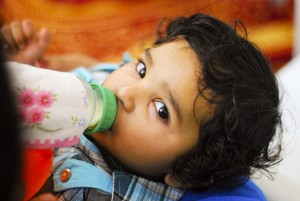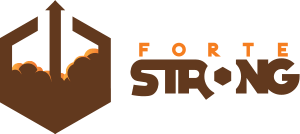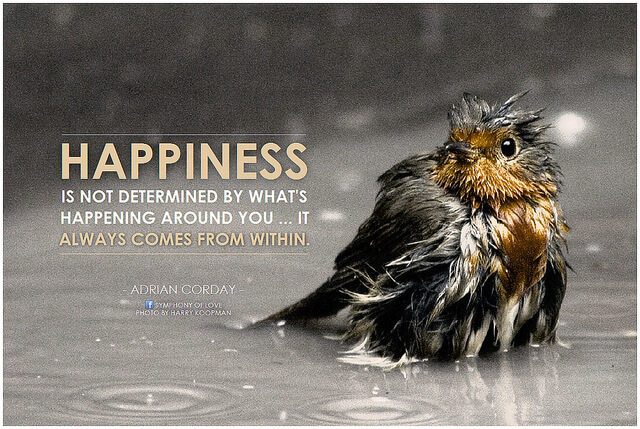Many families have at least one member who is content to just let life happen to them instead of letting life happen for them and that means taking personal responsibility for the direction of their own life. Often this family member is a son or daughter who just doesn’t seem to be engaged, focused and present; they don’t seem to be living life at all, they seem to be avoiding it. It isn’t that they are unintelligent or lack gifts, skills and talents, often it’s the reverse. This leaves families scratching their heads wondering “What happened?” Content to allow others to dictate the pace and quality of their life, these young people drift aimlessly, looking forward to the next “big thing” released by XBox or PlayStation or the next big movie blockbuster. Often, they withdraw from their friends, their family and from the world in general as they drift into the age of what most consider to be young adulthood yet not progress as a young adult should.
If this describes your child, he or she has probably gone on a developmental vacation according to Dr. Dan Sanderson – “a vacation from his own life”
In our childhood and adolescent years, we normally go through a series of developmental tasks that go way beyond the physical changes we experience at puberty. Part of maturing and becoming an adult means working through these psychological tasks and coming to certain milestones that give a young adult a foundation to launch into adulthood. One especially crucial milestone in this ongoing human development, is establishing an identity. Our identity helps us to understand where our thoughts and emotions originate and who is responsible for them, as opposed to getting our thoughts and emotions confused with other people’s thoughts and emotions.
 That may sound strange: how could anyone mistake someone else’s emotions as their own? To really understand this, we need to understand it as a child would understand it. In a child’s world, parent’s are their universe and they are the center of it. When a child cries, falls down or makes a mistake, Mom and Dad are quickly there to make things better. Without that sense of safety and well-being a child would certainly die if left to their own devices. As a result, a child’s security and well-being are tied up in the security and well being of their parents. Mommy and Daddy are their sole caretakers, providing for their needs and wants and that is how it should be, when a child.
That may sound strange: how could anyone mistake someone else’s emotions as their own? To really understand this, we need to understand it as a child would understand it. In a child’s world, parent’s are their universe and they are the center of it. When a child cries, falls down or makes a mistake, Mom and Dad are quickly there to make things better. Without that sense of safety and well-being a child would certainly die if left to their own devices. As a result, a child’s security and well-being are tied up in the security and well being of their parents. Mommy and Daddy are their sole caretakers, providing for their needs and wants and that is how it should be, when a child.
Eventually that child must grow up and if that child is to become a healthy adult, both emotionally and mentally, they’ll need to build their own identity; an identity strong enough to take on the challenges and demands of life. In other words, they have to figure out how to meet their own needs instead of relying on their parents.
 To build that identity, they must first experience themselves working through hard and challenging things that they may not want to do in order to get their needs met. The G.I. Generation called this “building character”. Milking the cows, pulling weeds, taking out the trash, cleaning your room and returning that stolen candy and then apologizing were and still are part of building character. These experiences slowly add up and help guide adolescents and young adults to believe they have the capacity to do the hard things that are necessary for them to have the kind of life they want.
To build that identity, they must first experience themselves working through hard and challenging things that they may not want to do in order to get their needs met. The G.I. Generation called this “building character”. Milking the cows, pulling weeds, taking out the trash, cleaning your room and returning that stolen candy and then apologizing were and still are part of building character. These experiences slowly add up and help guide adolescents and young adults to believe they have the capacity to do the hard things that are necessary for them to have the kind of life they want.
So what happens if someone doesn’t eventually build character or forge an identity out of doing hard things?
The answer is they continue to see themselves as powerless and helpless human beings and in turn rely on those around them, namely Mom and Dad, to meet their needs and make everything ok. The result is a young adult that is unwilling and unable to take responsibility for their own life and who continue to depend on others to meet their basic needs. Instead of investing their time and energy to meet the demands of their own life these grown-up children spend the majority of their time and energy trying to manipulate others to do it for them. They are masters at knowing what emotional buttons to push in order for someone else to take the wheel so they can return to the back seat and get comfortable while someone else takes control.
 When someone gets frozen in this childlike state, they have gone on a Developmental Vacation. In other words, they are not doing the life tasks they need to in order to learn, grow and mature into adulthood. Developmental Vacation is not reserved for adolescents only. This Developmental Vacation is the main reason why many young adults experience failure to launch. People may live a long life, even into their 50’s and 60’s and still be emotionally frozen in a childhood like state, not necessarily from disease or illness but from a lack of challenges, commitment and follow-through. The good news is, no one needs to remain in this frozen state. With a little bit of encouragement, some direction and yes, tough love, you will be surprised how many “helpless” adults quickly become productive and contributing members of society. It’s up to us as parents to make sure we hold them accountable.
When someone gets frozen in this childlike state, they have gone on a Developmental Vacation. In other words, they are not doing the life tasks they need to in order to learn, grow and mature into adulthood. Developmental Vacation is not reserved for adolescents only. This Developmental Vacation is the main reason why many young adults experience failure to launch. People may live a long life, even into their 50’s and 60’s and still be emotionally frozen in a childhood like state, not necessarily from disease or illness but from a lack of challenges, commitment and follow-through. The good news is, no one needs to remain in this frozen state. With a little bit of encouragement, some direction and yes, tough love, you will be surprised how many “helpless” adults quickly become productive and contributing members of society. It’s up to us as parents to make sure we hold them accountable.
ABOUT THE AUTHOR
Eric Hatton has spent most of the last six years working as a field staff in wilderness therapy where he coached students on primitive fire skills, making and setting traps and other important wilderness skills. He also coached staff as they learned leadership skills and as they learned to disrupt dysfunctional behavior in the students. Eric loves brainstorming with people. He loves to help people organize their thoughts and change their dreams and desires into tangible, achievable goals. He loves to help people to discover their passions and to help them find ways to use their passions to realize their goals. He is passionate about building great teams and organizations and helping others succeed.


